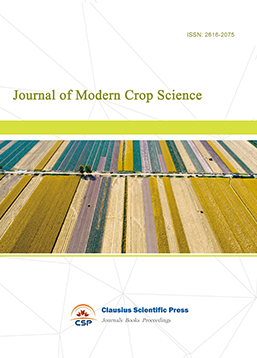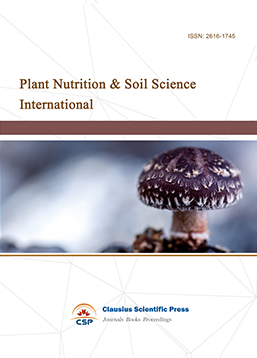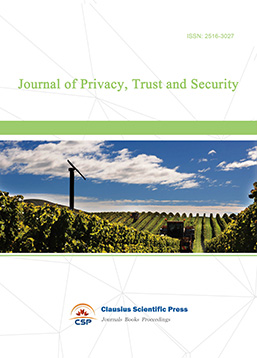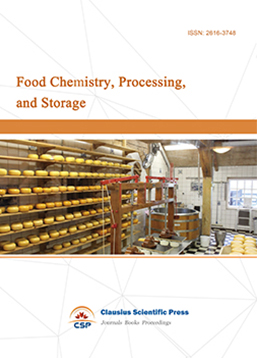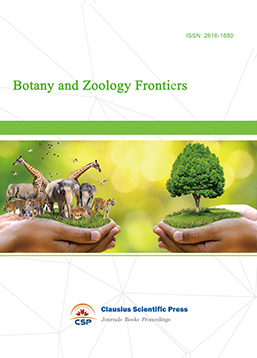Antioxidant Properties of Pear Polyphenols and Their Application in the Development of Functional Foods
DOI: 10.23977/afshn.2025.070101 | Downloads: 41 | Views: 1776
Author(s)
Yaqi Zhao 1, Jiayi Song 1, Yixuan Wang 1, Yanxin Xu 1, Yumin Fan 1, Xiaohan Ding 1
Affiliation(s)
1 Shandong Agricultural University, Tai'an, China
Corresponding Author
Yaqi ZhaoABSTRACT
Pear polyphenols are a class of natural active substances widely found in pear fruits, and have remarkable antioxidant properties. In recent years, with the increasing demand for functional foods, pear polyphenols have shown broad application prospects in the development of functional foods due to their unique biological activity and health benefits. This paper summarizes the chemical composition, antioxidant mechanism and their application of pear polyphenols in functional foods, and discusses their stability and future development direction in food processing, in order to provide theoretical basis for further research and application of pear polyphenols.
KEYWORDS
Pear Polyphenols; Antioxidant Properties; Functional Food; Food Development; Biological ActivityCITE THIS PAPER
Yaqi Zhao, Jiayi Song, Yixuan Wang, Yanxin Xu, Yumin Fan, Xiaohan Ding, Antioxidant Properties of Pear Polyphenols and Their Application in the Development of Functional Foods. Advances in Food Science and Human Nutrition (2025) Vol.7: 1-8. DOI: http://dx.doi.org/10.23977/afshn.2025.070101.
REFERENCES
[1] Zhang Xiaoshuang, Zheng Yingchun, Cao Yufen, et al. Analysis of the composition and content of polyphenols in the 16 parts of "early crisp" and "Nanguo pear" [J]. China Agricultural Science, 2017, 50 (03): 545-555.
[2] Sophie Tobacco, Lei Ji, Liu Jiang, et al. The characteristics of polyphenol oxidase and control of juice browning in snow pear [J]. Food Technology, 2020,45(02):303-310.DOI:10.13684/j.cnki.spkj. 2020.02.049.
[3] Bai Yuhao, Li Chao, Yang Zhiguo, et al. Progress in the characteristics of pear polyphenols oxidase and the inhibition of enzymatic browning [J]. Food Technology, 2022, 47(02):75-81.DOI:10.13684/j.cnki.spkj. 2022.02.037.
[4] Yin Yanyan, Zhang Jian, Lu Lunwei, et al. Progress in polyphenols in roxburgh rose [J]. Food and Machinery, 2024, 40(01):234-240.DOI:10.13652/j.spjx.1003. 5788.2023.80474.
[5] Li Yi, He Jun, Zhang Pengmin. Release of antioxidant components in roxburgh pear in vitro simulating gastrointestinal digestion [J]. Modern food Technology, 2020, 36(02):102-107. DOI:10.13982/j.mfst. 1673-9078. 2020.2.015.
[6] Xu Qing, Tan Shuming, Yu Lu, et al. Effects and mechanisms of roxburgh pear polyphenols on NG-nitro-L-arginine methyl ester-induced hypertension in mice [J]. Food Science, 2023, 44 (17): 94-100.
[7] Verdu F C , Guyot S , Childebrand N , et al. QTL analysis and candidate gene mapping for the polyphenol content in cider apple.[J].PLoS ONE,2017,9(10):e107103.
[8] Luo Ling, Wang Hongxin, Hu Qianqian, et al. oxidation of tea polyphenols by the oxidase [J]. Anhui Agricultural Science, 2014 (11): 3395-3398. DOI:10.3969/j.issn.0517-6611.2014.11.091.
[9] Zhang Xiaolong, Wu Binxia, Zhu Zhaoyu, et al. Content of active ingredients and antioxidant activity in different parts of gardenia mountain [J]. Food Industry Technology, 2024, 45(12):10-17. DOI:10.13386/j.issn1002-0306. 2023090003.
[10] Wang Lei, Fu Ling, Jing Linlin, et al. Study on the antioxidant active ingredients of Chinese rose [J]. Journal of Chemistry of Higher Education, 2012, 33 (11): 2457-2461.
[11] Ding Miao, Cheng Yuan, Li Shuang, et al. Effect of origin on the active ingredients, antioxidant capacity and glucose-lowering activity of Tartary buckwheat [J]. Fine Chemical Industry, 2024, 41(11):2513-2521. DOI:10.13550/j.jxhg.20231020.
[12] José M C ,Paola N ,Edgar P , et al. Protective Effect of an Avocado Peel Polyphenolic Extract Rich in Proanthocyanidins on the Alterations of Colonic Homeostasis Induced by a High-Protein Diet.[J].Journal of agricultural and food chemistry,2019,67(42):11616-11626.
| Downloads: | 2815 |
|---|---|
| Visits: | 104204 |

 Download as PDF
Download as PDF